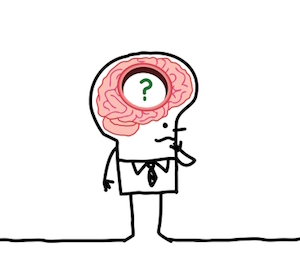Parenting is no different from managing other relationships in our lives. In any situation, improving our relationships with others is not always about ‘tips and tricks’ or specific tactics, but rather about how we SEE another person.
The Most Important Parenting Skill You Can Build to Communicate Better With Your Teenager
How we see someone determines how we act towards him or her. Child development and parenting expert, Gordon Neufeld, describes it with this example.
If you saw a child throwing a tantrum, and you saw his behavior as just being defiant, spoiled, or having a bad attitude - you’d respond a certain way. If, however, you saw this child as being completely overwhelmed by their emotions and unsure of what to do about it – you’d respond very differently. How we see or interpret someone’s behavior influences how we respond to them.
Having a deeper understanding of what is going on underneath the behaviors of another person gives us a new way of seeing them.
And this can also help us take a step back and understand that some of their behaviors may simply be a part of a process that they need to go through. It’s not a personal attack on us. Looking at it that way gives us mental and emotional room to breathe. Then, we can come up with new and authentic ways of playing a role in their life.
I notice parents experience a level of rejection underneath the frustration that exists in many adult-adolescent relationships. This rejection results from seeing their behavior as hurtful, rather than a part of their growth from dependence to independence.
When you take a teenager’s behavior personally, you add rejection and emotions to the equation. This leads you into a state of unrest, tension and defensiveness.
When you SEE someone’s behavior as a personal attack on you, you are actually triggering the part of your brain involved in fear (your amygdala).
Once this happens, the part of your brain involved in communication and rational thinking goes “off-line.” (see Daniel Goleman for information on ‘amygdala hijacks’).
Not all interactions with teens start out as negative. However, when there’s an existing tension or feelings of distance and rejection, even small interactions can lead to arguments. If you feel angry/ hurt/ defensive/ etc., it means the experience triggered your amygdala (“fight or flight response”). That also means it is NOT the best time to communicate. You won’t be able to say what you want to say in a way that the other person will hear. Instead, you’ll be using your more ‘primitive’ brain to speak.
Recognize ‘amygdala hijack’ for more effective parenting communication
Start by understanding how much control you can have over your own reactions. Take time to reflect and get to a calm space. Then, learn how to return to this place after you have your initial reaction. This will bring a totally different ‘vibe’ into your interactions with your teen. Recognize when your amygdala has been hijacked. This way, you can own your emotions. In fact, ‘observing yourself’ or becoming aware of your own reactions activates a powerful part of the brain. It can help you override ‘emotional hijacks’ and quickly get to a place of strong and clear communication.
Why should adults do the work to become more self-aware and not the teenagers?
As adults, we already have the brain architecture to help us do this more easily than teenagers. It’s called ‘back to front’ development. So, becoming aware of our own emotions actually feels really good. Therefore, if we become more self-aware, we can reap benefits (feeling better) without trying to change another person. Also, when we regain control over our emotional reactions, we MODEL this behavior. And, thanks to ‘mirror neurons’, modeling is one of the most powerful ways a teen will learn to do this for themselves.
How can we get to a place where we don’t feel so defensive/ reactive?
Get started on a path to become more mindful in your parenting.
Calm.com has an app with meditation sounds and guided meditations. The site, itself, is even very calming.
More than Sound has a products from Daniel Goleman and a whole category on mindfulness, including for kids .
Headspace.com is a fun site with some easy to understand science, great apps and tools.
Acknowledge your reactions and take steps to regain control of your emotions. This mindfulness is the most important skill you can model to a teenager.




